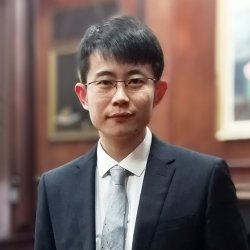Surrey's prototype battery only needs seconds of sunlight to keep smart wearables charged
Thirty seconds of sunlight could boost the battery life of future smartwatches and other wearables by tens of minutes, thanks to a renewable and rechargeable battery prototype developed by the University of Surrey.

Surrey's Advanced Technology Institute (ATI) has demonstrated how its new photo-rechargeable system, which merges zinc-ion batteries with perovskite solar cells, could allow wearables to spring back to life without the need to plug in.
Jinxin Bi, a PhD candidate at ATI and the first author of the paper, said:
"This technology provides a promising strategy for efficient use of clean energy and enables wearable electronics to be operated continuously without plug-in charging. Our prototype could represent a step forward to how we interact with wearables and other internet-of-things devices, such as remote real-time health monitors."
Surrey's environmentally friendly, photo-rechargeable system is unique because of its elegant and well-matched structural design between the integrated battery and solar cell, allowing it to demonstrate high energy and volume density comparable to state-of-the-art micro-batteries and supercapacitors.
Dr Wei Zhang, project co-lead and expert in perovskite solar cells from the ATI, said:
"This project is an example of how the University of Surrey is dedicated to producing research and innovation that equips humanity with the knowledge, tools and technologies to help us live better and more sustainable lives."
Dr Yunlong Zhao, project co-lead and expert in batteries for wearables and implantables from the ATI, said:
"The unique features in our ultrafast photo-rechargeable system could promote wide applications in self-powered wearable internet-of-things, autonomous power systems and emergency electronics. In addition, it will broaden the perception and insight of designing the next generation of miniaturised flexible photo-rechargeable systems."
The research was published in Energy Storage Materials.
The University of Surrey is a world-leading centre for excellence in sustainability – where our multi-disciplinary research connects society and technology to equip humanity with the tools to tackle climate change, clean our air, reduce the impacts of pollution on health and help us live better, more sustainable lives. The University is committed to improving its own resource efficiency on its estate and being a sector leader, aiming to be carbon neutral by 2030. A focus on research that makes a difference to the world has contributed to Surrey being ranked 55th in the world in the Times Higher Education (THE) University Impact Rankings 2022, which assesses more than 1,400 universities' performance against the United Nations' Sustainable Development Goals (SDGs).
ENDS
Notes to editors
Reference: A highly integrated flexible photo-rechargeable system based on stable ultrahigh-rate quasi-solid-state zinc-ion micro-batteries and perovskite solar cells, Energy Storage Materials, 2022 (51) 239-248. https://www.sciencedirect.com/science/article/pii/S2405829722003580?via%3Dihub
Jinxin Bi, Dr Wei Zhang and Dr Yunlong Zhao are available for interview upon request.
Contact the University of Surrey's press office via mediarelations@surrey.ac.uk
Featured Academics
Media Contacts
External Communications and PR team
Phone: +44 (0)1483 684380 / 688914 / 684378
Email: mediarelations@surrey.ac.uk
Out of hours: +44 (0)7773 479911

